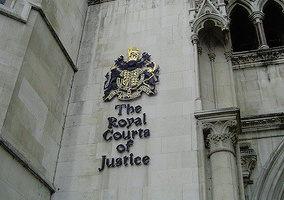A former solicitor will be unable to serve as a trustee of the charity he founded following a court ruling.
In a recently published judgment, Alan Blacker lost an appeal against the Charity Commission’s decision to ban him from serving on the board of any voluntary organisation until 2024.
This is the first time the tribunal has heard an appeal against the refusal of a waiver.
Blacker was disqualified from being a trustee in January 2020 after he was convicted of dishonestly making a false statement to the Department for Work and Pensions to maintain his disability benefits.
In September 2020, Blacker, who is a former solicitor and a founding trustee of the Joint Armed Forces Legal Advocacy Service (JAFLAS), applied for a waiver to be a trustee for the charity.
The Commission refused to grant him a waiver on two occasions, in April and September 2021.
The appeal
Blacker filed an appeal in September 2021, arguing that the Commission’s decision had “failed to take sufficient account of the evidence submitted, did not properly assess risk, is materially flawed, contained errors of fact, was unfair, logically poor, disproportionate and put the public at risk”.
He said that the ban prevented him from becoming a trustee for other charities which had asked him to join their boards to assist them with issues such as mergers, acquisitions and important negotiations.
Blacker also claimed to have worked in the voluntary sector for more than three decades and to have received a knighthood but the judge said no corroborative evidence had been supplied to support these claims.
The Commission said it rejected the appeal after concluding that “the benefits of granting a waiver did not outweigh the associated risks so that it was in the best interests of the charity and the wider sector for the automatic disqualification to remain in force”.
It also pointed out that granting a waiver would damage public trust and confidence in JAFLAS as Blacker’s conviction was “serious, recent and unspent”.
The judge’s decision
Blacker was struck off by the Solicitors Regulation Authority (SRA) in 2016 after he was found to have breached the SRA’s code of conduct.
A few years later, he was found guilty of making a false representation to obtain a benefit claim and was sentenced to nine months in jail.
In his evidence to the tribunal, Blacker included documents referring to himself as a solicitor practising under the SRA. He explained that “Dr Alan Blacker & Co” was a trading subsidiary of JAFLAS which aimed to protect the charity from litigious issues.
In her judgment, Alison McKenna said: “I find it difficult to assess the benefit of the appellant returning to the trustee board of JAFLAS without understanding the relationship between ‘Dr Alan Blacker & Co’ and JAFLAS. It does not seem to me that ‘Dr Alan Blacker & Co’ is a charity trading subsidiary in the usual sense, and I have not seen any evidence that JAFLAS has any formal mechanism of control over ‘Dr Alan Blacker & Co’. This relationship will need to be further investigated and properly understood.”
She continued: “On the evidence before me I am not persuaded that it is in the best interests of JAFLAS for the appellant to be permitted to return to the trustee board so long as this uncertainty remains. In the absence of any independent evidence to support his statements about offering assistance to other charities and receiving requests to serve on other charity boards, I conclude that the appellant has not presented sufficient evidence for me to identify a positive factual case in support of his application for a general waiver.”
Blacker: ‘Very poor outcome’
Blacker told Civil Society News: “This was a very poor outcome given the enormous outpouring of public support for the charity and its work and it was essentially a mechanical decision with little application of thought or intellect.
“We will continue to serve our vulnerable clients with passion and professionalism. The period of exclusion is short and will soon pass.”
Related articles












